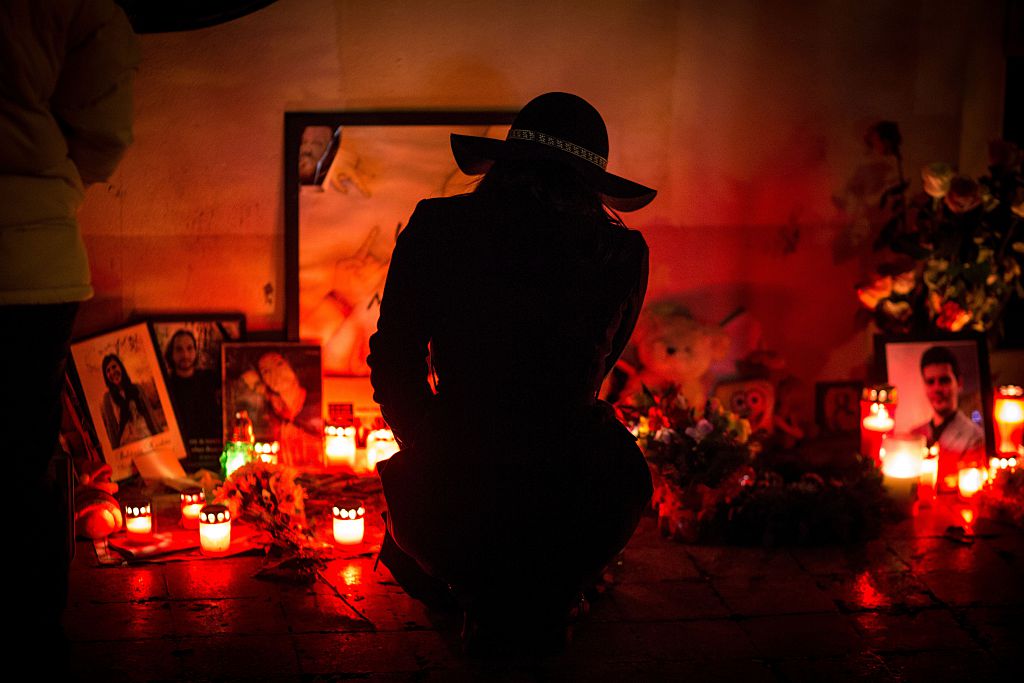A gripping Romanian documentary has made history as the country’s first film ever to be nominated for an Oscar in the international category. But ‘Collective’, which is also shortlisted for best documentary feature at tonight’s ceremony, isn’t a source of national pride. In fact, far from it: the movie shines a spotlight on the country’s rotten healthcare system. It follows a team of investigative journalists as they uncover deep-seated corruption in the aftermath of a deadly nightclub fire in Bucharest in 2015, that killed 65 people.
While 27 died on the night of the fire, many more died in the months afterwards. They lost their lives in bacteria-riddled hospitals that were not only ill-equipped and unprepared to deal with burns patients, but also caught using watered-down disinfectants. Shockingly, this fact was known to Romania’s national intelligence services, and the defective products used in 350 state hospitals for some years.
The string of dark revelations about woeful healthcare corruption after the deadly blaze prompted mass street protests which toppled a government. These displays of fury became marked by two simple words: ‘Corruption Kills’.
The Covid-19 pandemic has further exposed the decay in Romania’s healthcare system
‘Justice and accountability is the only way to prevent corruption in any society. But in Romania, as a citizen – you can’t believe in accountability,’ the film’s director, Alexander Nanau, told The Spectator this week. Nanau is appalled that, despite 13 convictions over the blaze, which was triggered by fireworks in a basement nightclub, no one is serving time behind bars almost six years on.
‘Collective’ is a brilliant, eye-opening film and it deserves the huge success it’s had. However, since the fire, and the journalists’ bleak revelations, little has changed in Romania’s healthcare system, and things may in fact have got considerably worse. All this, in a country that has been an EU member state since 2007.
Fire safety regulations being ignored, top-to-bottom corruption, and rampant hospital bacterial infections are bad enough. But the Covid-19 pandemic has further exposed the decay in Romania’s healthcare system, with a series of deadly hospital fires that echo the nightclub inferno seen in ‘Collective’.
Two blazes in Covid-19 hospitals in the last six months – one at a top Bucharest institution – have left more than 20 people dead. Ahead of the Academy Awards tonight, Nananu said these fires show that Romania’s problems of mismanagement continue.
In the film, you see Vlad Voiculescu installed as health minister in the gatekeeper government. He cuts an idealistic and honest force fighting for change against a veritable wall of corruption. Yet as Romanians are finding out, it was clear that it would take more than goodwill to reform decades of decay in the country’s healthcare system.
There were sighs of relief when Voiculescu was reappointed health minister – this time for a full term – following elections last December. Then, two weeks ago, he was fired by prime minister Florin Citu. Why? It’s not clear, beyond his difficulties in trying to manage a creaking healthcare system amid a global pandemic. Since Voiculescu was ousted, he has spoken out saying that ‘the Health Ministry is collapsing.’ It’s safe to say that many Romanians are not optimistic that things will change for the better any time soon.
Not long before Voiculescu’s political demise, tragedy struck again when a mobile intensive care unit failed in Bucharest, killing three Covid-19 patients inside. It was just another example of Romania’s disorganised and failing healthcare system.
By Nanau’s own admission, one of the only major positives – if we can call it that – to come from the journalists’ hard work and the international success of ‘Collective’ is the continually growing chorus of whistleblowers in the medical sector and further afield who call out Romania’s healthcare system for what it is: defunct and corrupt.
If ‘Collective’ wins an Oscar tonight it will be the first Romanian film in history to do so. It would be a victory for Romanian cinema and culture and a badge of shame for the government. But for future generations, Nanau says, it’s a reminder of ‘how this system works and that it has to be repaired.’






Comments